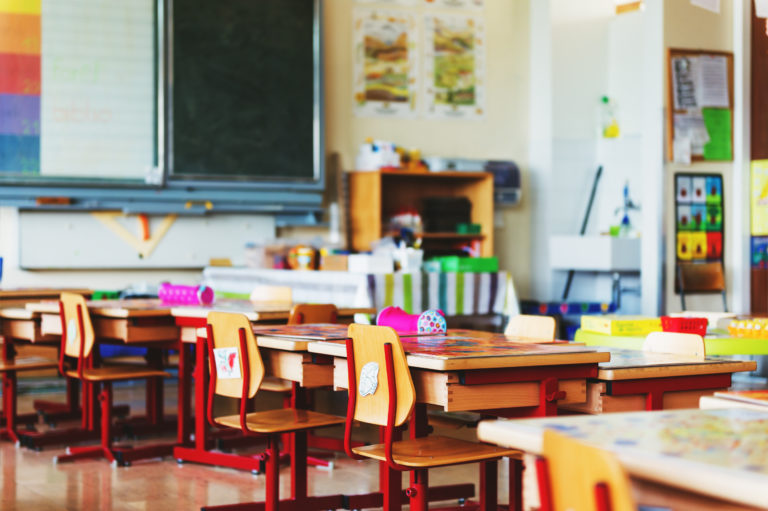The start of a new year is traditionally a time for reset and renewal, and no doubt many of us are looking forward to a brighter 2022. While the latest Covid-19 variant continues to create disruption and uncertainty in the classroom, leading to increased staff shortages and pupil absences which ramped up during the first week back to school, there is still much to be hopeful for in education.
This year will see some significant policy developments, with the publication of the Department for Education’s (DfE) much-anticipated White Paper and the long-awaited review into special educational needs and disabilities (SEND) provision, as well as a new climate change education strategy. The explosion of edtech during the pandemic is also set to continue into 2022, while questions marks remain around exams grading and the role of higher education and skills training in the Levelling Up White Paper.
Here is a round-up of some of the education initiatives, policies and edtech trends we can expect this year.
Exams
This will be the third consecutive year of unique grading. Whilst the Department is clear that its preference is for exams to take place, the ongoing Covid challenges may force a shift to contingency plans. If exams do take place, the question remains how exactly the grades will look compared to 2021, 2020 and 2019 (the last year of ‘normal’ exams). A longer-term question is how this will translate into 2023 and beyond and what this will mean in the future job market when employers are looking at candidates with non-comparative grades from different years.
Teacher training, recruitment and retention
The contract for the Government’s new flagship Institute of Teaching (IOT) is due to be awarded soon with the pilot kicking off in September. This comes as Initial Teacher Training (ITT) providers are working on reaccreditation following the outcome of the ITT Market Review. The sector will be watching how the IOT and the ITT reforms come together with the ongoing implementation of the Early Career Framework and Teaching School Hubs. Outside of training, recruitment and retention continue to be a challenge, so any moves to crack that will be watched with interest.
T Levels
Now in their second year, T Levels are growing encouragingly. More than 5,000 students across more than 100 college providers are in this second cohort and have chosen from an expanded roster of 10 T Levels. This steady growth is consistent with the Department’s plans to steadily increase the availability and uptake of the ‘gold standard’ qualifications in the coming years. Given the impending changes to the qualification’s work placements and exit requirements for English and Maths, it will be interesting to see how students, colleges and employers capitalise on this refreshed take on vocational education.
Higher Education
The long-awaited Levelling Up White Paper is expected at the end of January and will likely include plans for the role of Universities and skills as part of the levelling up agenda. Later in the year a wider settlement for universities in England is expected which will include the government’s plan for tuition fees and student finance following the Augar review, future arrangements for quality and the Teaching Excellence and Student Outcomes Framework (TEF), and the future of university admissions. In Spring 2022 the post-16 education and skills bill and the freedom of speech bill are expected to be finalised in Westminster. Science Minister George Freeman has also set out the government’s priorities on HE and Science including establishing the new UK Advanced Research & Innovation Agency and securing UK association of Horizon or the creation of a UK alternative.
Meanwhile in Wales, the Senedd will review plans for a new commission for tertiary education and research, whilst the Scottish government is expected to conduct a review into postgraduate funding.
Sustainability and Climate Change Strategy
Speaking at last year’s COP26, Education Secretary Nadhim Zahawi launched the Government’s draft Sustainability and Climate Change Strategy which includes recommendations to improve climate change education in the curriculum. With a view to helping more young people develop “green skills” for the future workplace, the announcement reflects the vital role that education plays in the country’s transformation into a green industrial leader.
The final publication of the strategy is set for April 2022, however draft reforms include climate change and sustainability CPD for teachers, and the development of a Primary Science Model curriculum to help improve understanding of nature and biodiversity amongst young children. The strategy will also outline ways that school estates can operate in a more eco-friendly manner, including improving heat and flooding resilience measures and supporting schools to become carbon neutral.
Digital-first classrooms
Technology has become an indispensable tool over the past 18 months to help schools continue teaching in challenging remote circumstances. In the process, many schools have realised the potential of technology to ease workload and make lessons more engaging and dynamic, with interactive games, personalised content tailored to students’ individual abilities and needs and opportunities for greater autonomous learning to boost children’s confidence and flexibility with learning. Furthermore, providing opportunities for students to become familiar and proficient with different digital devices and applications is key to improving their digital literacy, so that they can thrive in the future workplace.
In 2022 it is likely that digital tools will become further embedded in the classroom, and in tandem with this it’s important that schools continue to invest in edtech CPD for staff so that they can build upon and upskill in digital technologies.
SEND Review
The Department for Education’s SEND review, which has a remit “to boost outcomes and improve value for money” and end the “postcode lottery” of SEND provision, has been beset by delays since it was first announced in September 2019.
The Government has promised the review will help to improve capacity and support for families in England, as well as improve value for money. It would also align incentives and accountability for schools, colleges and local authorities and assess what was behind the rise in education, health and care (EHC) plans. The DfE has since said it wanted to balance a “commitment to deliver real, sustainable change with ensuring that any reforms will reflect the impact of the pandemic”.
Though the review has been delayed, and understandably given the challenges of the pandemic, the most important thing is that the wait proves worth it – for public financial viability for starters, but most crucially for the children and families who need accessible, timely and high-quality support.
When the SEND review is published, which it is currently expected to be early this year, there is hope within the sector and beyond that it will take a joined-up approach with the Independent Review of Children’s Social Care, which is also expected to publish this year, along with the Department for Education’s White Paper.
Department for Education’s White Paper
First expected under former Secretary of State Gavin Williamson in 2021, the Department for Education’s latest White Paper is set to be published in the coming months by current Secretary of State Nadhim Zahawi.
Mr Zahawi has already signalled a commitment to bolstering literacy and numeracy, particularly on the back of pandemic-related learning gaps. While it’s hard to argue against the importance of improving literacy and numeracy, this may open up a wider question – the latest Ofsted inspection framework’s focus on a broad and balanced curriculum means some schools which have, for whatever reason, particularly focused on literacy and numeracy have suffered in inspections for narrowing the curriculum – any curriculum-related policy coming out of the DfE needs to have an aligned Ofsted framework to go with it. (Speaking of Ofsted, we’re now in the start of Amanda Spielman’s last term as Her Majesty’s Chief Inspector – schools will be watching closely for any signs of what comes next).
Given how the pandemic has escalated the need for schools and pupils to embrace the digital world, the Department may be keen to address the digital divide in some way, so something around baseline digital standards for schools may be coming down the line in order to support both the infrastructure as well as the actual tech schools and pupils have access to. Any such requirements will hopefully have funding attached to it so schools can ensure they are able to viably provide the future-focused tech access their pupils need.
Other issues to expect the White Paper to tackle: behaviour and attendance in schools.
In terms of school structures, as PLMR pointed out in our recent Academies Briefing, there are a number of reasons to expect a continued shift towards all schools being part of an academy trust and the likelihood of this may in part now be down to the statistics and logistics as opposed to politics or ideology. This won’t be about academisation for the sake of it, but about drivers for collaborative school structures which build a stronger school system. However, don’t expect a repeat of the 2016 White Paper which attempted to mandate all schools join a trust.
What we can expect instead is a continued incentivisation for schools to join a great trust – with an emphasis on great. What this will look like on paper remains to be seen, but certainly expect carrots rather than sticks this time, and an approach which is focused on growing and developing strong trusts. Rather than opening the door to more new trusts being formed, the White Paper is likely to focus on consolidation and cementing and building on the existing strengths within the system.
Whatever the final White Paper, SEND and children’s social care reviews look like, there is much potential for them to connect to each other in coherent, strong and sensible ways which can together have a tremendous impact on the lives of children and families, which is more important now than ever. After the last couple of years, 2022 may hold what education is most keen for: hope.





